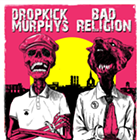There are still plenty of John Denvers out there, but now that limitless tracks can be arranged easily on home computers, you better believe they all have Pro Tools back at the cabin.
Tradition holds that it's perfectly acceptable to split a singer-songwriter at the hyphen: "Dylan's great -- but I hate his voice." For that growing number who also produce their own recordings -- and certainly for Nick Jaina, a Portlander whose album Wool drops March 5 on Hush Records -- the hyphen is unbreakable. "Ideally it should be seamless," Jaina says. "You don't want the listener to be able to distinctly hear the song and what was done to it in production as two separate things."
Like famous Portland singer-songwriter Elliott Smith, Jaina's a studio rat obsessed with the recording process. On Wool -- undoubtedly a "producer's album" -- the Earth is his turf. As much a document of pretty songs as adventurous ears and gonzo techniques, it's sonically soft and gentle; compositionally, it's a tangled product of two great freedoms: patience and impulsiveness.
"It's easier once you know how the knobs and levers work to just do things yourself, instead of telling someone to do things for you," says Jaina. He adds that self-producing also means never having to defend your sanity, a saving grace for outside-the-box thinkers.
On Wool, he organized a group of people to ring bells that look like putty knives -- one person, one bell, one note -- and recorded them, used a computer to adjust the EQ, cut off each bell's attack and kept the phantom ringing.
To get the right echo, Jaina will seek out the right room. He and Wool's co-producer Jason Leonard stood at opposite ends of a large poster restoration studio to achieve the desired sound from a glockenspiel. Wool's vocals were laid down in his Portland kitchen. Other instruments were recorded in friends' houses.
When it comes to orchestrating Jaina's songs, violin, cello, bass, accordion, kettle drums, chimes, guitar and piano are givens. He went into the field to capture more obscure sounds. Birds chirp, rocking chairs squeak, and garbage can lids slam on Wool. They're all authentic sounds, and they're all employed with subtlety, worked into songs as organically as they were gathered.
Take album closer "Hudson Harmonic," for example. Lyrically, it drifts into the ocean; sonically, water is everywhere. A microphone by a river? Clever. But no, actually the microphone was not aimed at the water, but at the boat traveling through it. The recording does exactly what the song does.
That perfect synchronicity is what Jaina's all about, but there are many weird sounds on Wool that aren't so carefully considered. "Putting more layers in a song is something that's just intuitive and hard to express in words, and so if I want to put a sample of an opera singer in there, I just do it and don't have to explain to someone why I'm doing it, because I honestly don't know why I'm doing it."
The few seconds of dislocated opera that bookend lead single "Power," then, are whimsy, added because they please Jaina in indescribable, unintelligible ways.
& lt;span class= & quot;dropcap & quot; & P & lt;/span & roduction on Wool is polar -- some sounds manifest precise visions, others are freestyle feng shui -- and its musicianship is the same. Transcendent moments hide in nooks and crannies.
"Power" is, like the rest of Wool, slow and lush. Plodding piano and warm strings hit first. Then comes Jaina's soft vocal coo. It's a beautiful song, swooning and stately in a Nick Drake sort of way, but it's not until the third or fourth listen that you notice the best part. Filling gaps between strings and voice are exquisite bits of delicate accompaniment: soft, understated swells of finger-picked acoustic guitar. On anyone else's album, it would be the star of the song. On Jaina's, it's part of the total package.
Jaina lived in New Orleans for years, and while he's conscious not to jack the city's sounds wholesale, there are subdued blues, gospel and jazz on Wool. Occasional growled vocals plus a taste for garage-sale percussion add up to a noticeable Tom Waits vibe, seconded by a love of Eastern European melodies. When you break down Wool, a lot of it's based on the left hand of Chopin's nocturnes, minor-key jaunts made indie-rock popular by Waits and new artists like Beirut.
The cumulative effect -- of the staged/natural ambience, lo/mid/hi-fi recording styles, New Orleans, Tom Waits and Chopin -- is Tim Burtonesque in its magic: strange, moving, and oddly serene.
Jaina is a singer-songwriter, but not like those for whom the term was invented in the 1970s. You might like his songs, and you might be able to play them at home on your piano/guitar. But you won't be truly playing the song. Not completely.
Wool is proof that some songs are essentially uncoverable, cannot be reinterpreted, are impossible to break into parts. It's different times, it's varied geographies, but it's a coherent statement: The more you listen to Wool, the more welcome every detail seems.
Jaina wrote part of it on Elliott Smith's old piano. Maybe that has something to do with Wool affirming something Smith said of his own work, something that applies to the work of all home-recording neo-singer-songwriters: "The sound of the song is the same as the song itself."
Nick Jaina with Kaylee Cole and Karli Fairbanks at Caterina on Saturday, March 1, at 7 pm. Call 838-9819.















